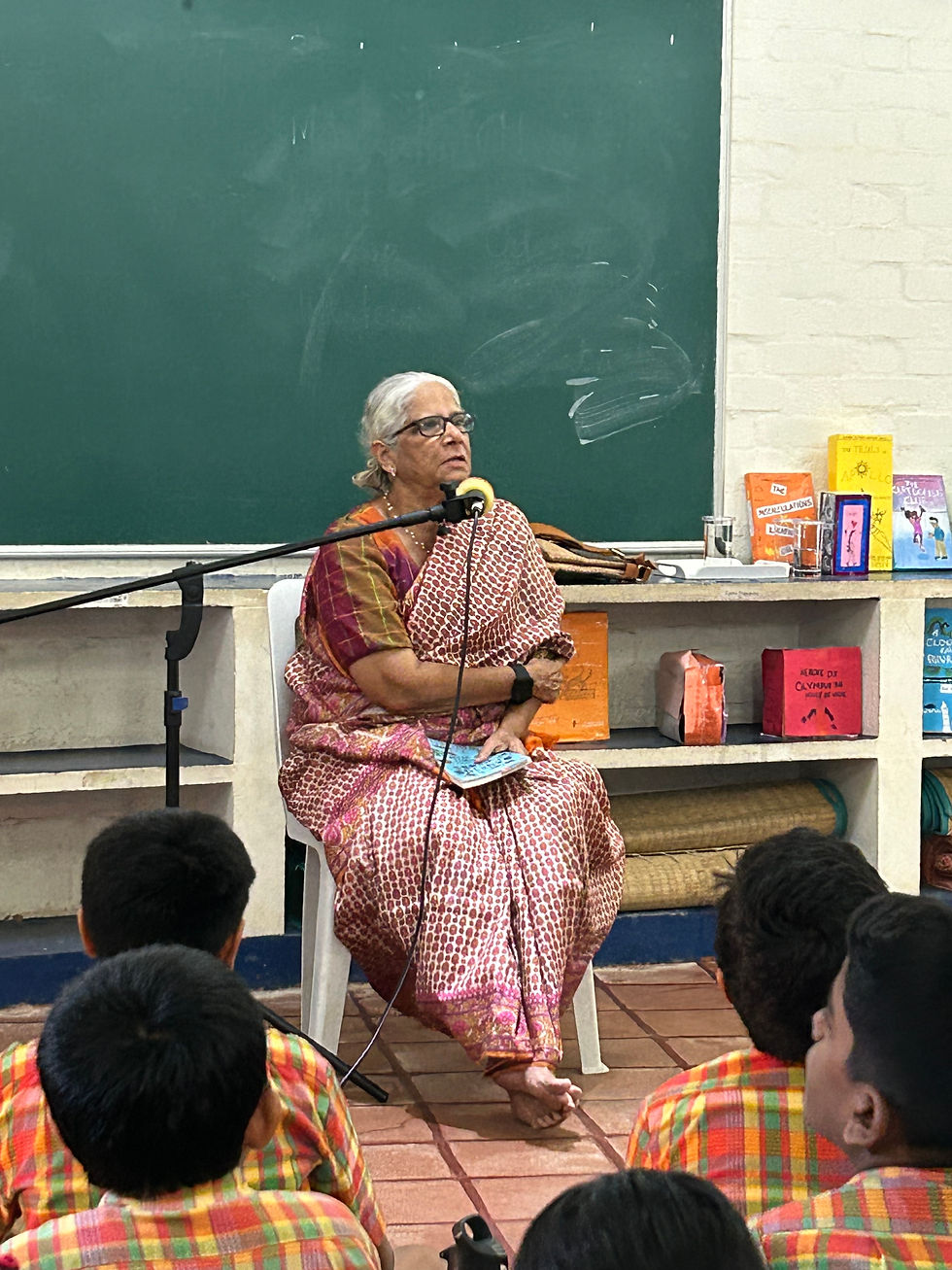Story Fun
- JoAnne Saldanha
- Jun 8, 2021
- 2 min read
25th March 2021
My students thoroughly enjoy participatory activities in the school library. With online fatigue rather strong, the fun element is needed even more. Last week, to celebrate World Storytelling Day 2021 it was their turn to create stories.
The class was divided in two groups, the brief simple. Create a story.
Using an image generator which shuffled the pictures, each child had to add a line to the story, keeping in mind the entire flow of the story, not just the previous line.
The same picture was used by both groups and the children would add to the story using the picture on the screen. Each team had a volunteer scribe who noted the entire story down. A time limit of one minute, to think and deliver a line, added pressure.
The children enjoyed this online version of a simple story game we usually play in the library either using cards or story dice.
I appreciated how rather maturely, the children all unanimously voted for the better story, giving reasons why they preferred one over the other. The other story had some humorous elements, but didn’t gel as a logical story.
This one did…(Each line coordinates to the images above)
“There was a boy named Smash. Weird name isn't it? Smash loved bananas� . Smash would growl like a bear when someone tried to take his banana's. Smash was so angry he broke the strings of his guitar . He shouted after he tore the strings of the guitar and the whole world heard him. When Smash screamed the ducks in the nearby pond got scared and flew away. When he screamed the beautiful flower petals in Miss. Stella's garden fell off. A giant came out of a cave and stamped on Miss. Stella's dead flowers . Since no one has seen a giant before, the incident where the giant came into Miss. Stella's garden made it into the front page of the newspaper .”
A wonderful way to build creativity and imagination, with teamwork, a spirit of fairness and a sense of responsibility as a bonus!
“Narrative imagining — story — is the fundamental instrument of thought. Rational capacities depend upon it. It is our chief means of looking into the future, or predicting, of planning, and of explaining.”
--Mark Turner, cognitive scientist, linguist, and author








Comments